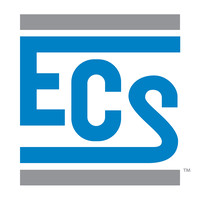Geotech/Pull-Test Report Guide
Geotech/Pull-Test Report Guide for Solar Developers
Geotech Reports give the developer and installer a clearer picture of how expensive it may be to build a solar project on a particular site. SolRiver Capital wants developers and installers to understand why a Geotech Report is required during the diligence process for you to secure an investment from us and the scope we typically require before engaging with an independent engineer. In this guide on Geotech Reports, we discuss:
- What a Geotech Report is;
- Why SolRiver requires it from the developer and when it is needed;
- The scope SolRiver requires; and
- Who can provide the service.
What is a Geotech/Pull-Test Report?
Geotech and Pull-Test Reports are soil analysis tests where a geotechnical engineer performs a soil sample analysis following a site visit. The test is performed at various locations across the project site to determine if there are any differences in soil composition in different areas of the site.
Why is the Geotech/Pull-Test Report needed and when do you need it by?
We require a Geotech or Pull-Test Report for any proposed ground-mount solar system to determine whether there is any danger of cost overruns after we issue an NTP for the project. For example, if there is a large granite slab under the site, the racking costs for the system will be higher than initially estimated. This report must also contain a “reliance” clause stating that certain parties can legally rely on the analysis. These tests should ideally be performed prior to RFP’s being sent to EPC’s, but before NTP is issued.
What is the required scope for a Geotech/Pull-Test Report?
For ground-mounted systems, Geotech Reports should confirm that the planned installation method of the solar system is feasible at the site without (1) the need to change the structural design or (2) cause significant delays to the construction of the solar facility. The Geotech should be certified by a Geotechnical Engineer who is familiar with the various types of soil that exist in the area of the project site. The geotechnical report should detail the following:
- Foundations recommendation
- Piles – soil properties to be used as LPile input parameters shall be provided
- Identification of alternative methods that should be considered due to specific site characteristics (pre-drilling/screw piles/ballast)
- Grading recommendations
- Paving/Gravel recommendations
- Excavation recommendations
- Skin friction values for resisting uplift and bearing forces
- Soil expansion characteristics
- Liquefaction potential and recommendations
- Allowable cut and fill slopes
- Compaction requirements
- Seismic site classification and settlement potential
- Thermal and Electrical Resistivity
- The soils investigation shall also determine whether the soils are corrosive to buried concrete and ferrous metals. Report shall provide recommendations for concrete type or metal finish.
The exploration and testing frequency shall be determined by the site’s acreage, with the condition that soil types across the proposed land is consistent in type and classification. If varying types of soils are discovered, additional testing shall be performed to accurately characterize the variation and allow the solar installer to design per site conditions.
SolRiver Capital
SolRiver Capital is a solar investment fund dedicated to financing development, construction, and acquisition of small and mid-size utility-scale projects across the US.
